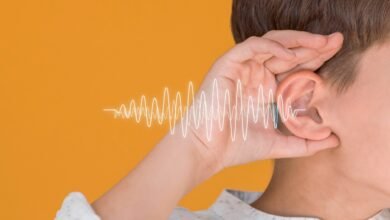The Signs and Symptoms of Brain Injuries

Do you know The Signs and Symptoms of Brain injuries? They are a serious and intricate concern with their potential to significantly impact an individual’s physical, cognitive, and emotional well-being. Originating from accidents, sports mishaps, falls, or other unforeseen incidents, comprehending the telltale signs and symptoms of brain injuries is paramount for timely intervention and effective care. This article delves into the multifaceted world of brain injuries, aiming to comprehensively understand their manifestations, implications, and the need for prompt medical attention.
Signs and Symptoms of Brain Injuries
In a world where accidents can occur in the blink of an eye, knowing how to recognize the indicators of brain injuries becomes an invaluable skill. From seemingly benign concussions to more severe traumatic brain injuries (TBIs), the damage inflicted upon the brain can disrupt its intricate functions, causing a cascade of physical, cognitive, and emotional changes. Delving into the nuances of brain injuries equips individuals with the knowledge to take action swiftly, ensuring that the appropriate steps are taken to mitigate potential complications and pave the way for a smoother road to recovery.
Understanding Brain Injuries
Grasping the Nature of Brain Injuries
Brain injuries are a complex and critical concern that can significantly impact an individual’s well-being. Whether arising from accidents, sports incidents, falls, or other sources, comprehending the intricacies of injuries is crucial for timely intervention and effective care. This section will delve into the various aspects that define injuries, shedding light on their characteristics and potential consequences.
Read More: 9 Best Foods to Boost Your Brain and Memory
Defining Brain Injuries
At their core, brain injuries encompass a spectrum of traumas that disrupt the brain’s normal functioning. These injuries range from mild concussions to severe traumatic injuries (TBIs). The brain, a remarkable organ responsible for controlling various bodily functions, thoughts, emotions, and behaviors, can experience diverse forms of damage due to trauma. This damage can result in many physical, cognitive, and emotional changes.
Different Facets of Brain Injuries
- Concussions: These are typically mild injuries that occur due to impacts on the head, often leading to temporary unconsciousness or confusion.
- Contusions: Involving bruising of brain tissue, contusions result from direct impact to the head.
- Penetrating Injuries occur when an object penetrates the skull and enters the brain.
- Diffuse Axonal Injuries: Caused by strong rotational forces, these injuries result in widespread damage to cells and connections.
Understanding these injuries is vital for recognizing their signs and symptoms and seeking appropriate medical attention.
What Are Brain Injuries?
Brain injuries encompass a range of traumas that disrupt the brain’s normal functioning. These injuries can vary from mild concussions to severe traumatic injuries (TBIs). The brain, a remarkable organ responsible for controlling bodily functions, thoughts, emotions, and behaviors, can experience different damage due to trauma. This damage can lead to many physical, cognitive, and emotional changes.
Brain injuries can result from various causes, including accidents, sports-related incidents, falls, and more. These injuries can ripple through every aspect of a person’s life, affecting their ability to perform daily tasks, engage in social interactions, and maintain their overall quality of life. Recognizing the signs and symptoms of injuries is crucial for early intervention and effective treatment, as timely care can significantly influence the extent of recovery and the long-term prognosis for individuals who have experienced these injuries.
Different Types of Brain Injuries
- Concussions: Mild brain injuries are often caused by a blow to the head, resulting in temporary unconsciousness or confusion.
- Contusions: These involve bruising of the brain tissue due to a direct impact on the head.
- Penetrating Injuries: When an object pierces the skull and enters the brain.
- Diffuse Axonal Injuries: Caused by strong rotational forces, leading to widespread damage of brain cells and connections.
Recognizing the Signs and Symptoms
Physical Symptoms
- Headache: Persistent or severe headaches that don’t subside.
- Nausea and Vomiting: Feeling nauseous or throwing up repeatedly.
- Loss of Consciousness: Brief or prolonged loss of consciousness.
- Dizziness and Balance Issues: Trouble walking or maintaining balance.
- Fatigue: Unexplained fatigue or drowsiness.
Cognitive Symptoms
- Memory Problems: Difficulty remembering recent events or forming new memories.
- Confusion: Feeling disoriented or having trouble processing information.
- Slurred Speech: Difficulty speaking clearly or coherently.
- Trouble Concentrating: Inability to focus or concentrate on tasks.
Emotional and Behavioral Symptoms
- Mood Swings: Drastic shifts in mood or emotional state.
- Irritability: Easily getting agitated or frustrated.
- Depression: Persistent feelings of sadness or hopelessness.
- Anxiety: Excessive worrying or feeling on edge.
Seeking Medical Attention
It’s crucial to stress that even seemingly minor head injuries should not be underestimated. Delaying or neglecting to address injuries can lead to complications and worsened outcomes. If you or someone else experiences any of the mentioned symptoms after a head injury, seeking medical assistance is imperative. A medical professional can evaluate the seriousness of the injury and recommend appropriate diagnostic tests and treatment.
Read More: How Mental Health Treatment Can Change The Brain
Conclusion
Brain injuries can profoundly impact a person’s life, affecting their physical, cognitive, and emotional well-being. Recognizing the signs and symptoms of brain injuries is crucial for ensuring timely intervention and preventing further complications. If you or someone you know experiences any of the symptoms discussed in this article after a head injury, don’t hesitate to seek medical help.
If you’d like to learn more about brain injuries, their symptoms, and how to respond, reputable resources are available online and through medical professionals. Staying informed about brain injury prevention, recognition, and treatment can make a significant difference in promoting better outcomes for individuals who may be at risk. Always prioritize safety and health when it comes to head injuries.
FAQs
Are all head injuries considered brain injuries?
Not all head injuries result in brain injuries. However, a medical professional should assess head injuries to avoid potential brain trauma.
How long do brain injury symptoms take to appear?
Some symptoms, like headaches and dizziness, can appear immediately, while others, such as cognitive changes, might take hours or even days to manifest.
Can brain injuries be completely cured?
The extent of recovery depends on the severity of the injury. Mild injuries may fully heal, while more severe cases might result in long-term effects.
Are children more susceptible to brain injuries?
Children’s brains are still developing, making them more vulnerable to brain injuries. Proper safety measures are essential to prevent such injuries.
Is rest the best treatment for brain injuries?
While rest is important, medical evaluation is crucial. Treatment plans may involve rest, medication, therapy, or even surgery, depending on the severity of the injury.







